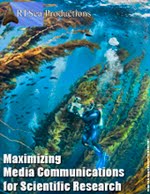 Sewage treatment seems like a practical and logical step from an environmental perspective. Much better to treat raw sewage than to flush it right out to sea. But in taking that step decades ago, there was a learning curve involved, and part of that curve was the realization of the impact that nitrates, produced by the treatment process, would have on fresh water and ocean environments.
Sewage treatment seems like a practical and logical step from an environmental perspective. Much better to treat raw sewage than to flush it right out to sea. But in taking that step decades ago, there was a learning curve involved, and part of that curve was the realization of the impact that nitrates, produced by the treatment process, would have on fresh water and ocean environments.Organic nitrogen (nitrates) has been shown to cause a marked increase in plankton and several forms of algae which reduce both sunlight and oxygen levels - thereby choking off aquatic plantlife and from there a cascading effect ripples through the aquatic ecosystem, eliminating fish, shellfish, and just about everything else within the ecosystem. Rivers, estuaries, and shallow bays have been hard hit by many years of treated sewage, but there are distinct signs that conditions can be improved - if not reversed all together.
A study monitoring the effects of reducing nitrates in the Potomac River, in the eastern United States, has verified a noticeable improvement in aquatic vegetation. With a return of this basic ecological building block, so returns the animal life. And the vegetation acts as a filtering agent and buffer against floating particles, thereby improving overall water quality.
According to NatureNews, a reduction of two-thirds in the discharge of nitrates (from 20 tons per day in 1990 to 6 tons in 2007) through improved technology is primarily responsible for the improvement. "'It [the vegetation] is the base of the food chain,' says [participating scientist Nancy] Rybicki. 'The number of fish, particularly young fish, and the number of invertebrates increase dramatically within the plant beds.'"
Not only does this improvement in the Potomac mean good news for adjacent waterways like the Chesapeake Bay, which has seen a disastrous decline in its crab and oyster populations over the years, but it gives hope for many bodies of water and shallow tidelands worldwide. With past attempts to improve conditions in the Chesapeake Bay having been largely unsuccessful, in 2009 President Obama mandated a change by executive order, recognizing the bay as a national treasure and calling on the federal government to renew efforts to restore it. Through improved sewage treatment technology and careful monitoring of conditions, improvements can be realized.
William Ball, environmental engineer at John Hopkins University was quoted as saying, "Because much of the nitrogen decrease in the Potomac has been due to advanced wastewater treatment, this study is a strong validation of the utility and importance of applying this technology worldwide."
Margaret Palmer of Maryland's Biological Laboratory in Solomons added, "If we can clean things up in the bay, it offers great hope for other ecosystems, such as the Black Sea, the Baltic and many others."
Read the article in NatureNews.

















No comments:
Post a Comment